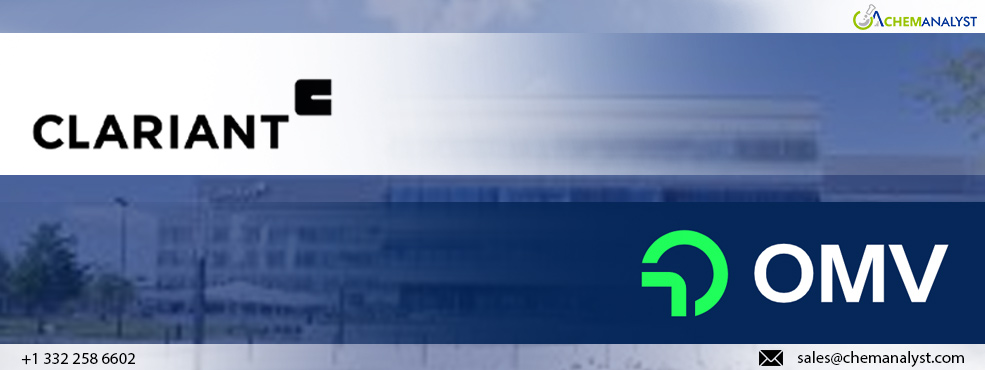Welcome To ChemAnalyst

Clariant, a specialty chemicals company committed to sustainability, and OMV have today unveiled their plans for a collaboration aimed at providing ethylene with a reduced carbon footprint. This partnership, driven by growing consumer demand for more sustainable solutions, particularly in Europe, will assist both companies in achieving their sustainability goals and supporting their customers' carbon reduction strategies.
Christian Vang, Business President of Care Chemicals and Americas and a member of the Executive Steering Committee at Clariant, stated, “We are committed to developing solutions that support our customers' transition to lower carbon footprint ethoxylates, and this collaboration is a significant advance toward that objective. OMV’s renewable, low-carbon footprint ethylene will allow us to expand our portfolio of bio-based ethylene oxide derivatives and enhance our supply chain with production capabilities in Europe, tailored for European markets.”
For Clariant, this marks a further advancement in its commitment to providing low carbon footprint ethoxylates to its global customers. Since 2022, Clariant has been effectively supplying segregated bio-based ethoxylates to customers around the world through Clariant India Glycols Specialty Company Ltd. (CISC).
Daniela Vlad, Executive Vice President of Chemicals and a member of the Executive Board at OMV, commented, “Ethylene oxide and its derivatives have a wide range of applications, and we are committed to driving sustainable transformations for both our customers and OMV. By supporting the supply of circular feedstock, we are enhancing our dedication to a circular economy and sustainability. This agreement represents a significant step forward in achieving our Strategy 2030 goals.”
OMV is at the forefront of advancing renewable and circular chemicals that support sustainable living. The company’s integrated business model connects various segments of the value chain, ensuring a more flexible and dependable supply from both bio-based and chemical recycling sources. This strategy not only lowers CO2 emissions but also demonstrates tangible progress, as evidenced by the ISCC PLUS certification of its mass balance approach.
Clariant and OMV intend to investigate and create new strategies to achieve sustainability goals within the ethylene supply chain. Through this collaboration, both companies will exchange research insights, implement a unified Life Cycle Assessment (LCA) methodology, and establish comprehensive CO2 reduction roadmaps. This will also involve a joint evaluation of the potential for collaboration on Ethanol-to-Ethylene (E2E) technology.
OMV began its renewable and circular chemical production at its Burghausen refinery in Germany in 2021 and has recently expanded this initiative to its Schwechat refinery in Austria. The company has been progressively increasing its production capacities for sustainable products, reaching a total capacity of 200,000 metric tons. According to current forecasts, OMV anticipates achieving a sales volume of approximately 1.4 million metric tons by 2030, with expectations to reach 2 million metric tons beyond that. OMV views the growth of sustainable products as a crucial component of its Chemicals business. The company aims to reduce absolute GHG emissions by 30% in Scope 1 and 2 and by 20% in Scope 3 by 2030 compared to 2019 levels. By gradually transitioning to low-carbon operations, OMV is committed to achieving net zero emissions by 2050 at the latest.
Clariant and OMV are participants in the UN Global Compact, the largest global initiative for corporate sustainability and social responsibility. The agreement between the two companies is anticipated to support Clariant in achieving its ambitious goals for absolute emissions reductions across its operations and supply chain, as detailed in its 2030 climate targets. These targets, developed in alignment with the Science Based Targets Initiative (SBTi), aim to cut Scope 1 and 2 absolute GHG emissions by 40% and Scope 3 greenhouse gas emissions by 14% between 2019 and 2030.
In addition to the sustainability targets of Clariant and OMV, this agreement will enable collaboration to achieve CO2 reduction goals set by industry stakeholders across Europe.
We use cookies to deliver the best possible experience on our website. To learn more, visit our Privacy Policy. By continuing to use this site or by closing this box, you consent to our use of cookies. More info.
